The Great Green Wall: fighting global warming in the Sahel
In the light of COP27 in Sharm el-Sheikh, the Great Green Wall Accelerator and the Sahel Alliance are intensifying their efforts to strengthen their cooperation and achieve the objectives of the Great Green Wall – resilient agriculture, restored land and the creation of green jobs – in the face of the challenges relating to climate change and soil desertification in the Sahel.
The five Sahel countries – Mauritania, Mali, Burkina Faso, Niger and Chad – rank among those most severely affected by climate change. Global warming, which could reach 4.3°C by 2080 in the Sahel – 1.5 times higher than the world average – is weakening the means of production of the populations, who are largely dependent on the agro-pastoral sector. Indeed, more than two out of three Sahelians depend on agriculture, livestock farming or fishing and see their livelihoods threatened by extreme weather events such as drought, land desertification, floods or variable rainfall. There is therefore an urgent need for climate change adaptation and investment policies to build the resilience of Sahelian populations and economies, without which up to 13.5 million people could be pushed into poverty by 2050. [1]
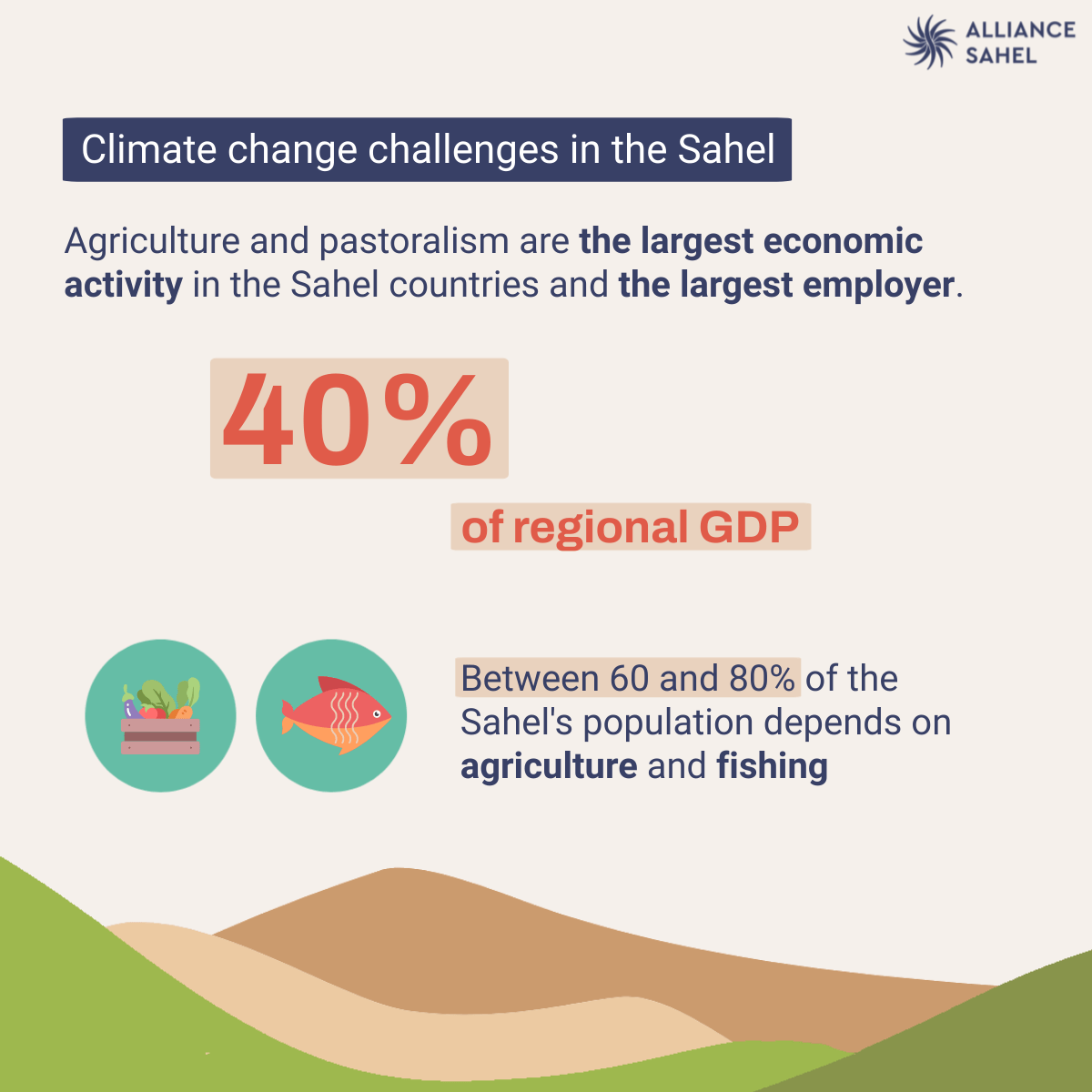
The fight against climate change, agriculture and rural development are central to the priorities of the Sahel Alliance members, with over 300 projects implemented and more than 6.5 billion euros committed as of 31 December 2021, contributing to the achievement of the Great Green Wall’s objectives. The Sahel Alliance members also support the G5 Sahel countries in the implementation of ambitious climate change mitigation and adaptation programmes.
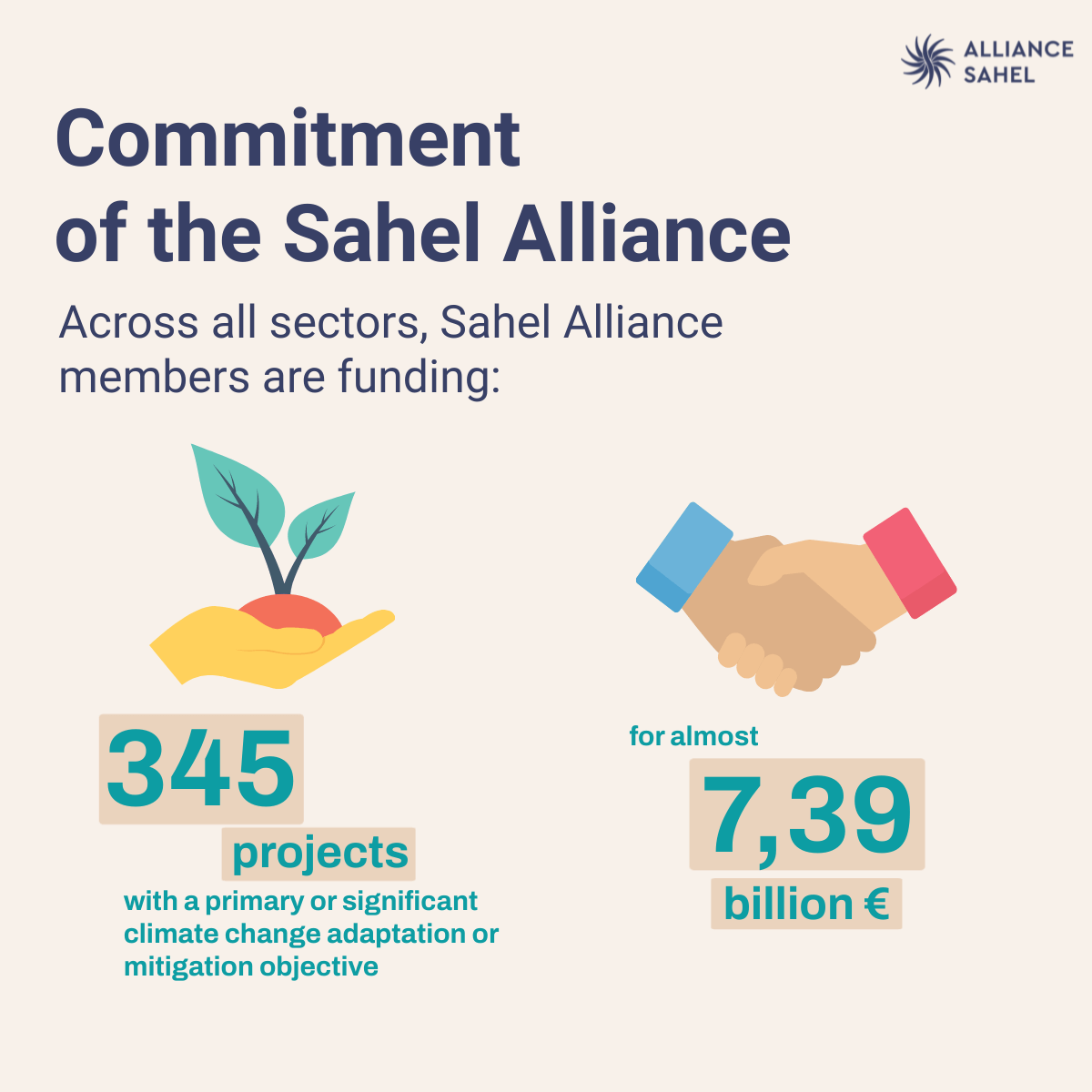
Speaking as a guest at the 7th Operational Steering Committee of the Sahel Alliance on 7 December 2021, Mr. Ibrahim Thiaw, Executive Secretary of the United Nations Convention to Combat Desertification (UNCCD), stressed the importance of synergies and convergent approaches of the two initiatives, linked by a common goal: a strong and resilient Sahel in the face of climate change. In addition to the implementation of joint activities, the Sahel Alliance and the Great Green Wall Accelerator are made up of the same pool of donors, and are aligned both geographically – the G5 Sahel countries being part of the 11 countries involved in the implementation of the GGW, and thematically. Thus, more than 50 joint projects are labelled Great Green Wall and Sahel Alliance, for a total committed amount of more than 3 billion euros, and contribute to land restoration, carbon sequestration and job creation.
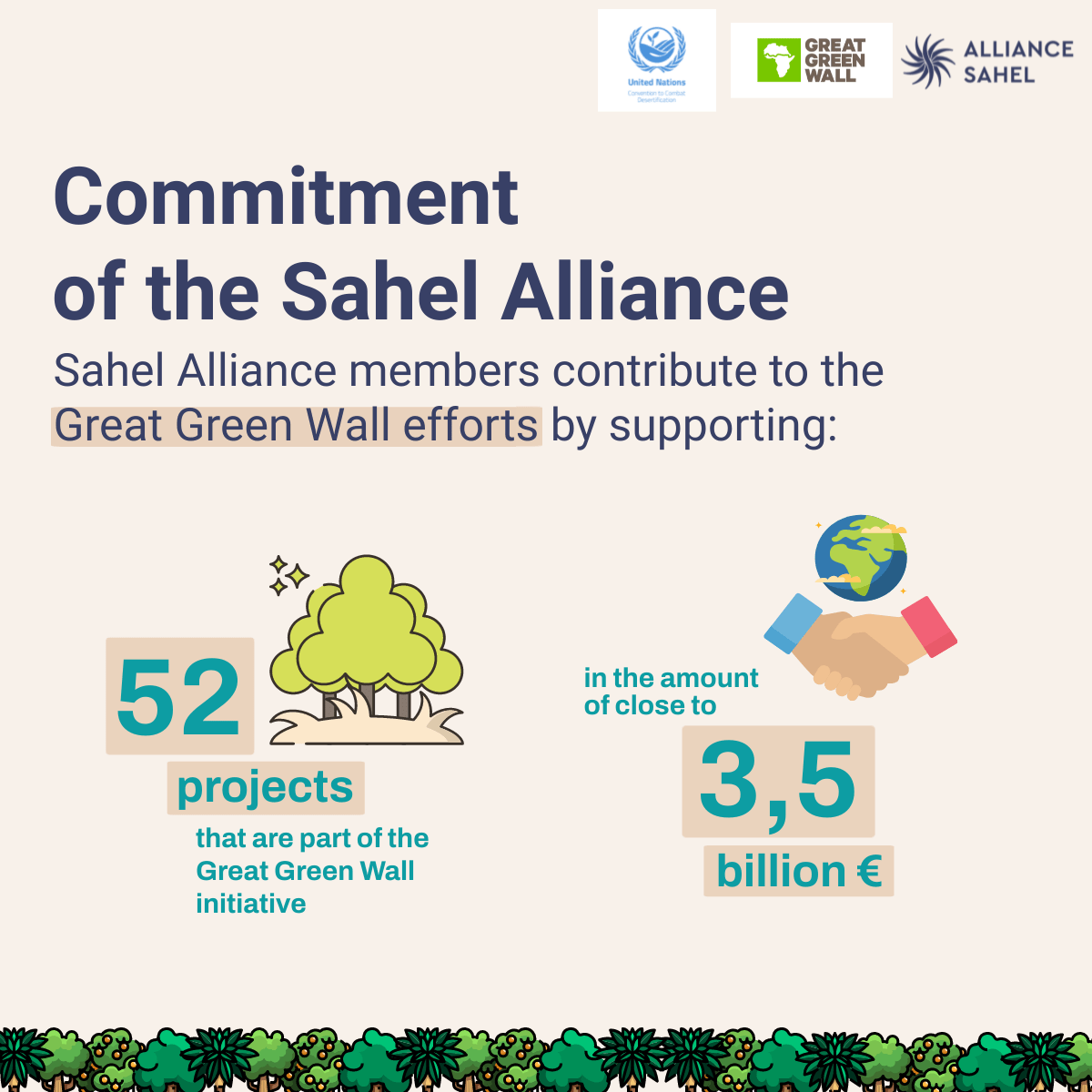
This mutual desire to strengthen synergies was made concrete by the adoption of a joint declaration on the sidelines of the Sahel Alliance’s General Assembly on 4 April in Madrid, followed by the organisation of a joint side-event at COP15 in Abidjan in May 2022, highlighting programmes and initiatives by Sahel Alliance members that contribute to the achievement of the Great Green Wall’s objectives.
On the eve of COP27, the GGW Accelerator and the Sahel Alliance are working hand in hand to increase and intensify the sharing of expertise on intervention, coordination and absorption capacities in beneficiary countries, with a view to better meeting the requirements of accountability and fulfilling the commitments made at the One Planet Summit in January 2021, including in fragile areas.
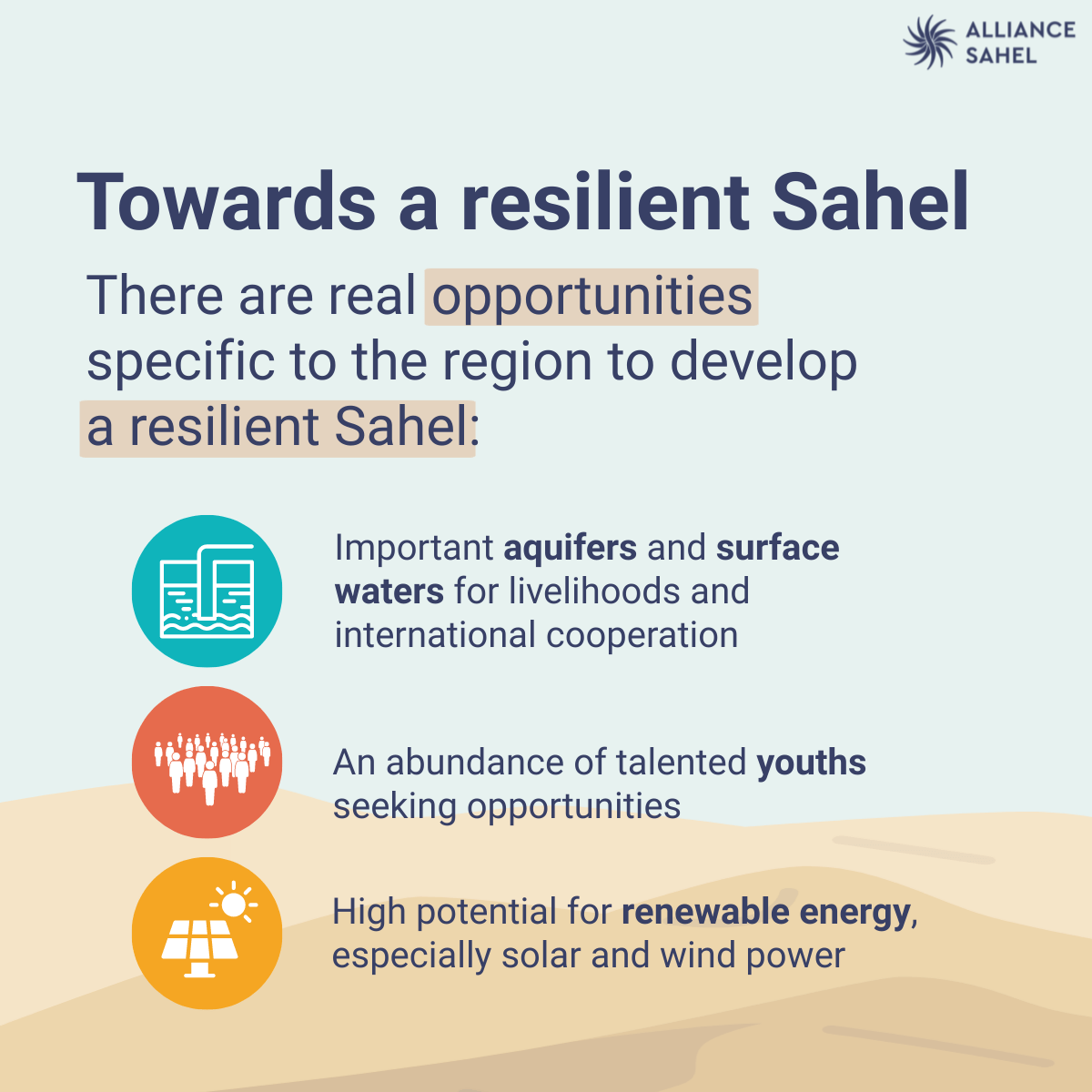
In the face of the challenges of climate change, the implementation of the Great Green Wall and its objectives, such as land restoration, resilience of populations and food production systems, as well as sustainable agriculture that generates jobs and income, is a unique opportunity to respond to multiple crises by capitalising on the region’s immense potential. Investments mobilised within the GGW framework contribute to drawing substantial dividends from the Sahel’s multiple potentials, notably in terms of renewable energies, water resources, and youth population, and thus constitute a vector for peace and stability in the region.
Niger – Youth Employment and Productive Inclusion Project, a Great Green Wall & Sahel Alliance initiative
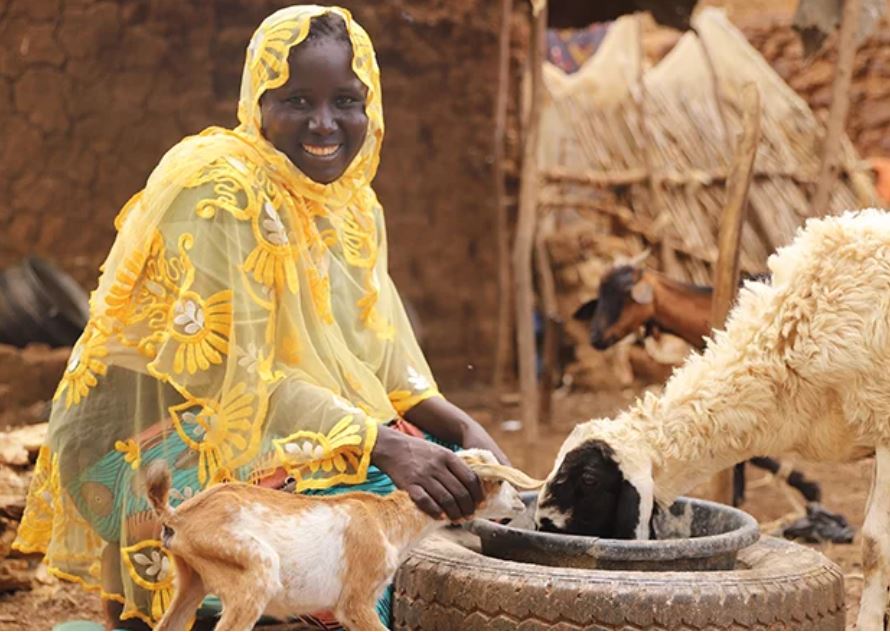
From selling millet balls to multi-businesswoman entrepreneur
Mina, 25, is a member of the community of Guidan Rana, located about 430 kilometers from the Niger capital, in the Tahoua region. A mother of three, she is very involved in the education of her children. Like the local population, her family lives by farming and raising livestock. Mina’s family and other community members have faced many challenges, including access to health, education, and food. Faced with these challenges, Mina took matters into her own hands, not only to help her husband who struggles to make ends meet, but also to ensure the best possible development for her children. Mina started with a small business, namely millet balls, a common dish eaten by Nigeriens who call it “Foura” in Hausa, her native language and the most spoken in Niger. Gradually, she developed other activities. However, since the implementation of the World Bank-funded Youth Employment and Productive Inclusion Project in Guidan Rana, Mina’s ambitions have taken on a different scale. (read the whole story)
[1] National Climate and Development Report, World Bank, 2021, G5 Sahel Region: National Report on Climate and Development (worldbank.org)

